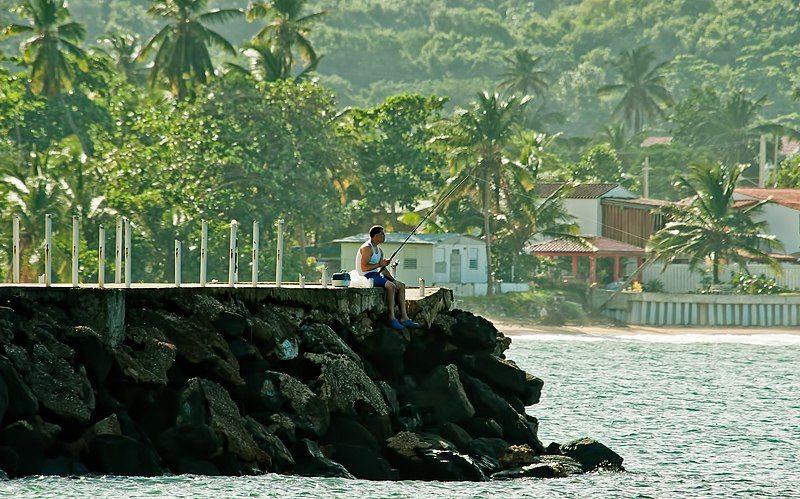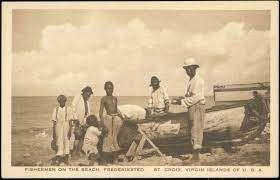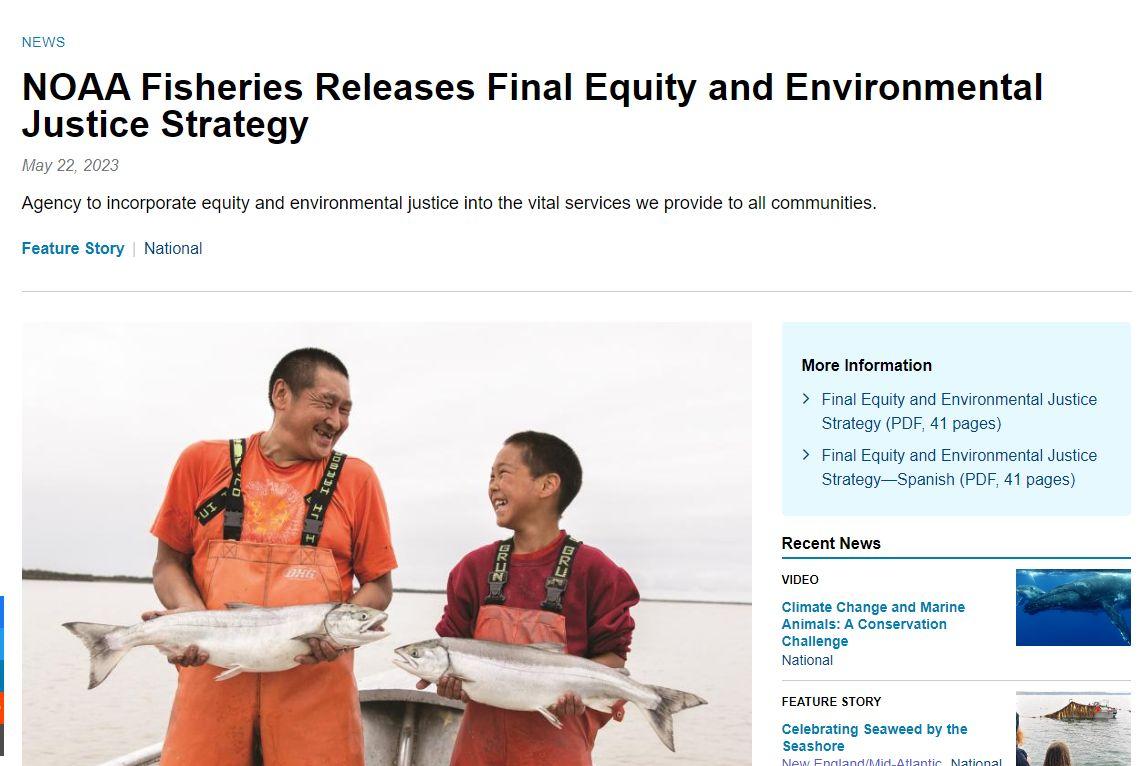Advancing Equity and Environmental Justice in the Southeast through Conservation and
Management of Living Marine Resources
August 30, 2023
Joint DistrictAdvisory Panel Meeting
Caribbean Fishery Management Council


Management of Living Marine Resources
August 30, 2023
Joint DistrictAdvisory Panel Meeting
Caribbean Fishery Management Council

Equity means the consistent and systematic fair, just, and impartial treatment of all individuals, including individuals who belong to underserved communities that have been denied such treatment.


Definition from Executive Order 13985.

Environmental Justice is the fair treatment and meaningful involvement of all people, regardless of race, color, gender, national origin, or income, with respect to the development, implementation, and enforcement of environmental laws, regulations, and policies including but not limited to:
● Equitable protection from environmental and health hazards


● Equitable access to decision-making processes
● Equitable opportunity for disadvantaged communities that have been historically marginalized
Definition from the Environmental ProtectionAgency.

Underserved communities have been systematically denied a full opportunity to participate in aspects of economic, social, and civic life.
These include geographic communities as well as populations sharing a particular characteristic such as: women and girls; Black, Latino, and Indigenous and NativeAmerican persons*,AsianAmericans and Pacific Islanders, and other persons of color; persons facing discrimination or barriers related to gender identity; members of religious minorities; lesbian, gay, bisexual, transgender, and queer (LGBTQ+) persons; persons with disabilities; persons who live in rural areas; and persons otherwise adversely affected by persistent poverty or inequality.
Definition based on Executive Order 13985


1. Prioritize identification, equitable treatment, and meaningful involvement of underserved communities
2. Provide equitable delivery of services
3. Prioritize equity and environmental justice in our mission work with demonstrable progress

• Align NOAAFisheries work with local needs
• Support community participation in science and management • Engage with more diverse groups • Characterize fishing communities and fishing benefits • Promote equity in fisheries resource access, aquaculture, and protected resources
Respect the autonomy ofTerritorial andTribal governments
Diversify NOAAFisheries workforce and Fishery Management Councils
• Monitor outcomes, not inputs

● Communicate early and often with stakeholders
● Coordinate with Fishery Management Councils, NOAAline offices and other federal agencies

● Support capacity for equity and environmental justice work:
○ Hire local, place-based staff
○ Invest in cultural and language expertise
○ Research social impacts of management decisions on people and communities
● Public request for information through September 30, 2023
○ Click here to submit written comments:
https://www.regulations.gov/commenton/NOAA-NMFS-2023-0092-0001
● Virtual listening session (postponed due to Hurricane Idalia; stay tuned for new date/time)
○ Register here to provide verbal comments:
https://docs.google.com/forms/d/e/1FAIpQLScviNDCCdkbtoW4fVDe2UtezomcI UwCEQCrvIvXF_P9_2SRLw/viewform
● Six focus groups with community members
○ Puerto Rico (North Coast-Dorado 8/21, Cabo Rojo 8/22, Ponce 8/23, Ceiba 8/24)
○ USVI (St. Croix 9/11, St.Thomas/St. John 9/13)
● Final Implementation Plan due January 1, 2024
Research and Monitoring: Expand collection of demographic data; incorporate indigenous traditional or local ecological knowledge into the data and information supporting our work
Policies and Plans: Continue reviewing EEJ impacts of management decisions using indicators; evaluate and address fairness and equity issues in catch share programs, disaster response protocols, climate action plans
Inclusive Governance: Hire multilingual staff in Permits Office; offer simultaneous interpretation services for Gulf and SouthAtlantic Council meetings; expand the Marine Resources Education Program
Benefits: Improve accessibility of regional grants processes (design, recruitment, review, selection processes)
Communication and Outreach: Translate permit applications and all other relevant materials to appropriate primary languages; use web and Google analytics data to increase accessibility to online materials; update or develop new communication plans and strategies based on targeted feedback from underserved communities
Empowering Environment:Address personnel needs - biologists for the Caribbean and anthropologists for all regions; organize regional workshop with federal partners to share information/lessons learned and leverage resources; support scholarship/internship opportunities for local residents; incorporate HBCU expertise into issue identification, community engagement, STEM pipeline

Heather Blough (727) 304-0131
heather.blough@noaa.gov
Brent Stoffle (305) 951-1212
Brent.stoffle @noaa.gov

